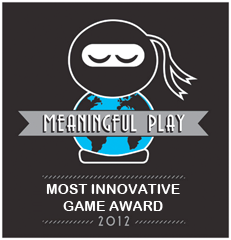
DNA Roulette takes a procedural rather than narrative approach to familiarizing players with the probabilistic nature of genomics. According to game theorist Ian Bogost, good games simulate how things work, an approach he calls "procedural rhetoric." They do so by constructing models that people can interact with. Unlike traditional roulette where the betting table and odds are always the same, DNA Roulette’s odds are different for each disease or trait. Even within a disease, the odds are different depending on which of several possible genotypes is randomly selected by the game engine for that round. In addition to specific details about diseases and traits, players to learn:
|

The FDA is considering restricting the public's right to see their own genome based on personal genetics testing without a doctor's prescription. Policy makers, health care professionals, and citizens have expressed concerns about potential negative impacts of direct to consumer DNA testing. Some concerns are justified, such as worry that consumers may place too much weight on the results, mistakenly interpreting “genes as destiny.” Other concerns may stem from policy-makers' own overestimation what DTC genetic testing actually reveals. In fact, few diseases or conditions have solely genetic roots; most are the result of a complex interplay of multiple genes and an individual's environment. DNA Roulette contributes to this public dialog by demystifying what knowing one's own genome would and would not reveal. The game can help to educate the public, policy makers, and doctors to inform their opinions. |

DNA Roulette conveys an intuitive sense of what genetic testing can reveal and how genes and the environment together define a person’s risk of developing a disease or inheriting a trait or condition. The game could help genetics counselors explain genetic testing to clients who need to understand their genetic test results. Medical school students, biology students, and the general public can play and learn. DNA Roulette conveys an intuitive sense of how genes and the environment together define risk. Additional traits and diseases can be added to future versions, simply by adding data to the external XML file without changing the game engine. Personalized version of the game could easily be linked to genetic testing data, so that the game maps to the player's own DNA, instead of randomly selected genotypes... |


 http:/seriousgames.msu.edu
http:/seriousgames.msu.edu